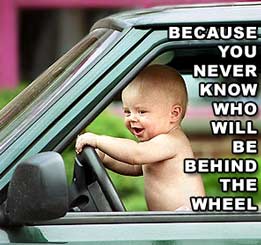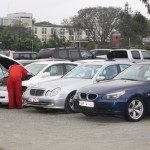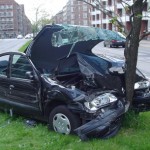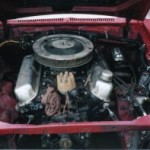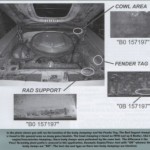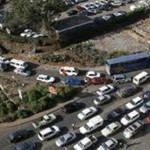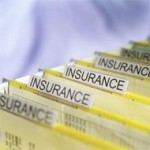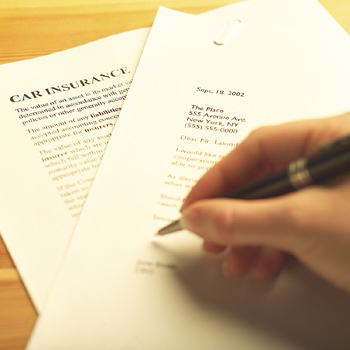 You should make this price comparison at least once a year. Still, it may not be a good idea to switch companies too often or arbitrarily. Sometimes loyalty pays. For instance, if you’ve been with one company several years and maintained a clean driving record, you may qualify for a safe-driver discount, which substantially lowers your premium. But if you’re contemplating a switch, the new company may be willing to classify you as a safe driver. In addition, you can often get a discount for insuring more than one vehicle-or your home-with the same company.
You should make this price comparison at least once a year. Still, it may not be a good idea to switch companies too often or arbitrarily. Sometimes loyalty pays. For instance, if you’ve been with one company several years and maintained a clean driving record, you may qualify for a safe-driver discount, which substantially lowers your premium. But if you’re contemplating a switch, the new company may be willing to classify you as a safe driver. In addition, you can often get a discount for insuring more than one vehicle-or your home-with the same company.
To get an accurate quote, you’ll need to provide information on the car or cars that you intend to insure: the make, model, year, trim line, and the vehicle identification number (VIN). You’ll also need to give the age, sex, and recent driving record of all potential drivers. Some companies may also ask where you normally park your car, and inquire about any aftermarket accessories you may have installed to prevent theft. The insurer may independently check your driving history using public documents such as police records, and your insurance history through your current and former insurers.
Buy the right amount
Car insurance is meant to protect you against catastrophic losses, such as a major accident or the theft of your car. Be prepared to absorb minor losses yourself, and you’ll save a lot. Here are tips on separating the essentials from coverage you can probably live without.
Coverage you must have
Bodily injury liability. Should you cause an accident, the “liability” part of your insurance coverage pays the medical, rehabilitation, and, if necessary, funeral bills of your passengers, the other driver, his or her passengers, and any pedestrians involved. It also covers pain and suffering awards as well as legal costs.
Buy coverage that will pay at least Ksh 100,000 per person and Ksh 300,000 per accident. If you have sizable assets, consider increasing those limits. Such added coverage will raise your premium at least 10 percent. We recommend that people with a high net worth have a separate “umbrella” policy to insure against a lawsuit seeking an amount beyond their auto policy’s limits. You may need to buy higher insurance limits to qualify for an umbrella policy.
Property damage. This coverage pays to repair or replace another person’s vehicle or other property damaged by your car.
Uninsured and underinsured motorist coverage. This covers medical bills, rehabilitation, and funeral costs, as well as losses for pain and suffering for you or the passengers in your car when an accident is caused by a hit-and-run driver or someone who has little or no insurance. Get the same amount of this coverage as you do bodily injury coverage. That way, if someone who has no insurance hits you, your medical costs will be covered.
Coverage you’ll probably need
Collision and comprehensive. Collision coverage pays to repair or replace your car no matter who or what caused the accident. Comprehensive pays to repair or replace your car if it’s stolen or damaged as a result of a storm or other natural event. Coverage kicks in for the amount above your deductible. Once the cost of this coverage equals 10 percent of your vehicle’s book value, you might want to cancel it, since you will collect no more than your vehicle’s market worth. Antique vehicles or cars with collector value sometimes are insured through a separate rider; or you may have to find a separate, specialty insurer.
Personal-injury protection. PIP reimburses you for lost wages and in-home care needed as a result of an accident. If you have separate health and disability policies, you can buy just the state-required minimum for PIP. The other policies should cover the balance of your needs.
Medical-payments coverage. Sometimes called med-pay, this covers medical bills for you and your passengers, regardless of who’s at fault. When this coverage isn’t automatically included in your policy, its costs are minimal. You may not require any if you have good health insurance. To protect passengers who may not have their own health coverage, you may want to carry at least Ksh 5,000 of this coverage.
Additional types of coverage
Roadside assistance. This coverage pays to have your vehicle towed. If you already have an auto-club membership or your car’s manufacturer provides this service for free, don’t buy this extra coverage.
Rental reimbursement. This coverage typically costs $30 per year and pays for a rental car-usually for up to 30 days-if your vehicle is stolen or is in the shop for repairs sustained in an accident. There’s usually a cap on the amount you’re reimbursed per day and per occurrence.
Adopted From: www.consumerreports.org/cro/cars/car-buying-advice/guide-to-used-car-buying/insurance

